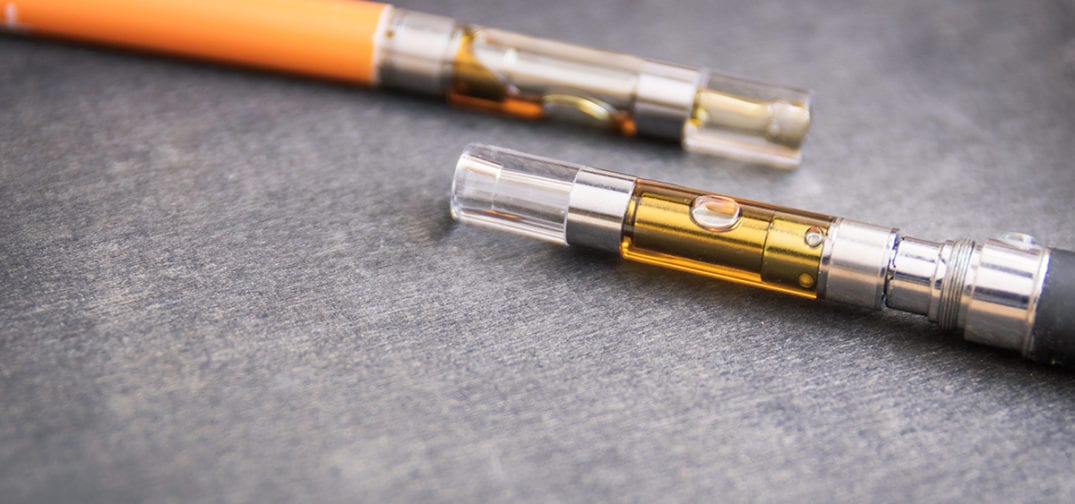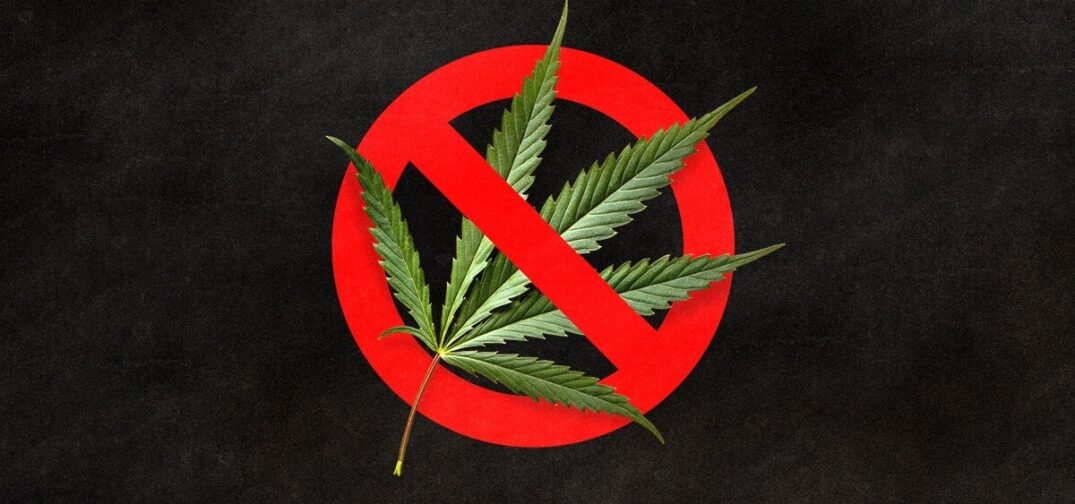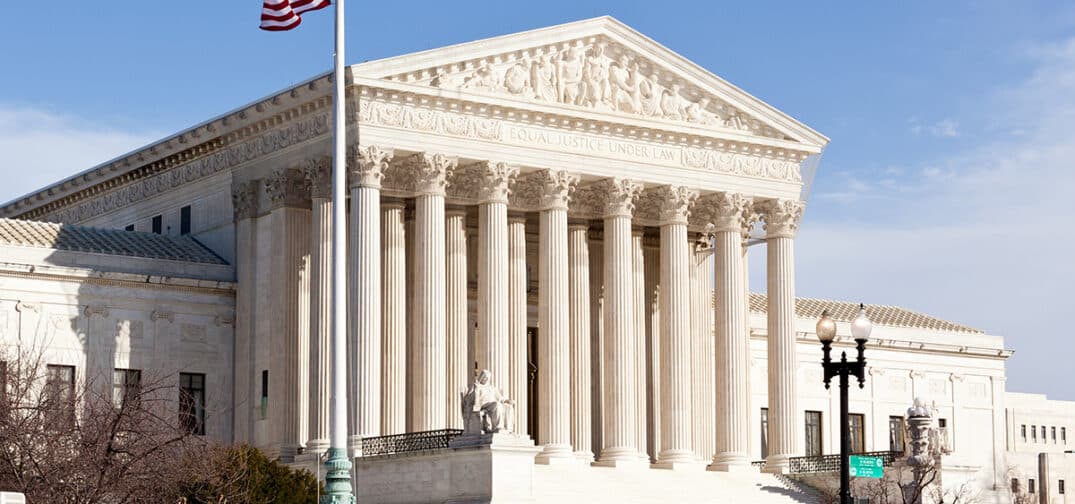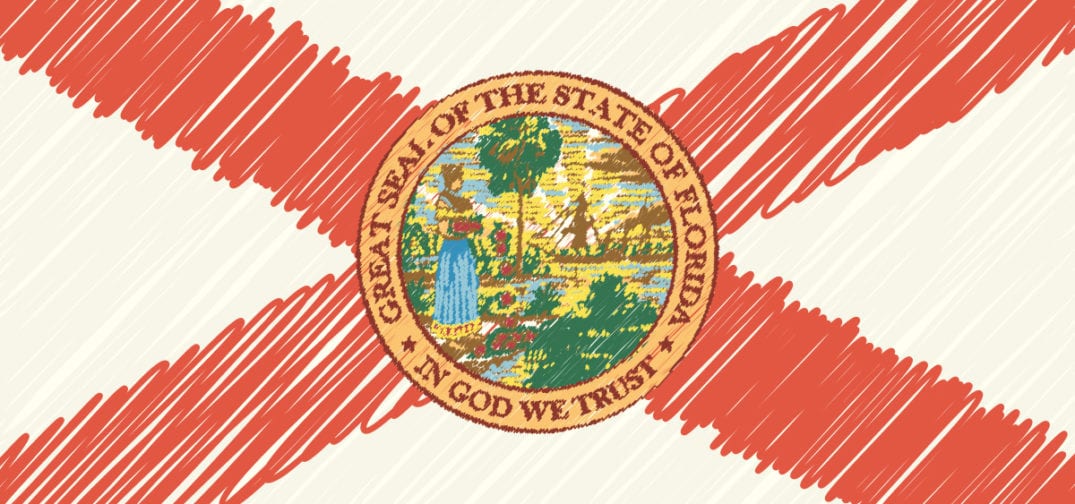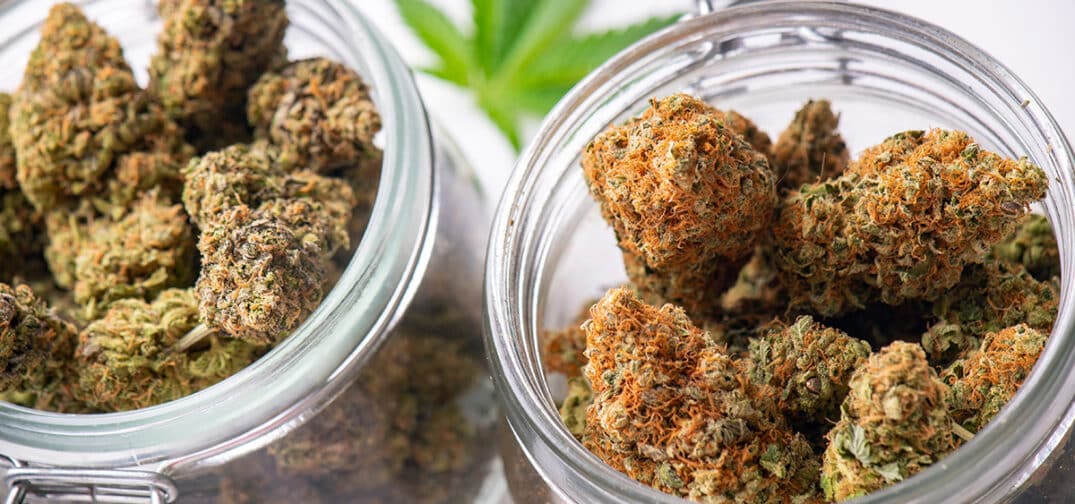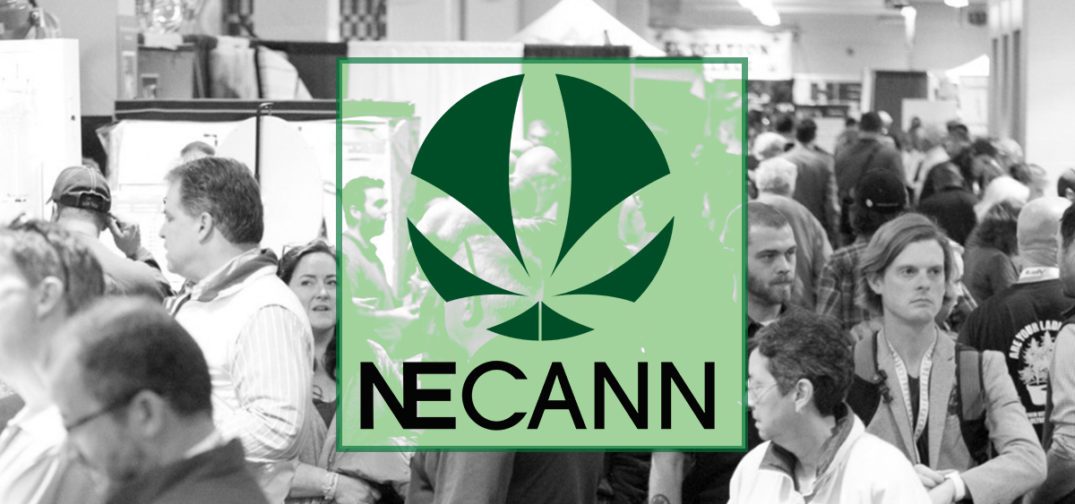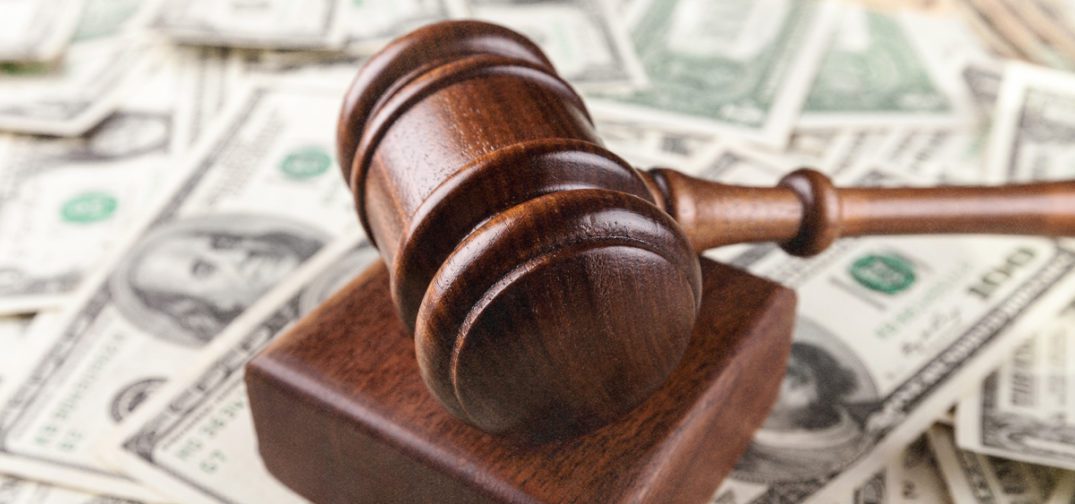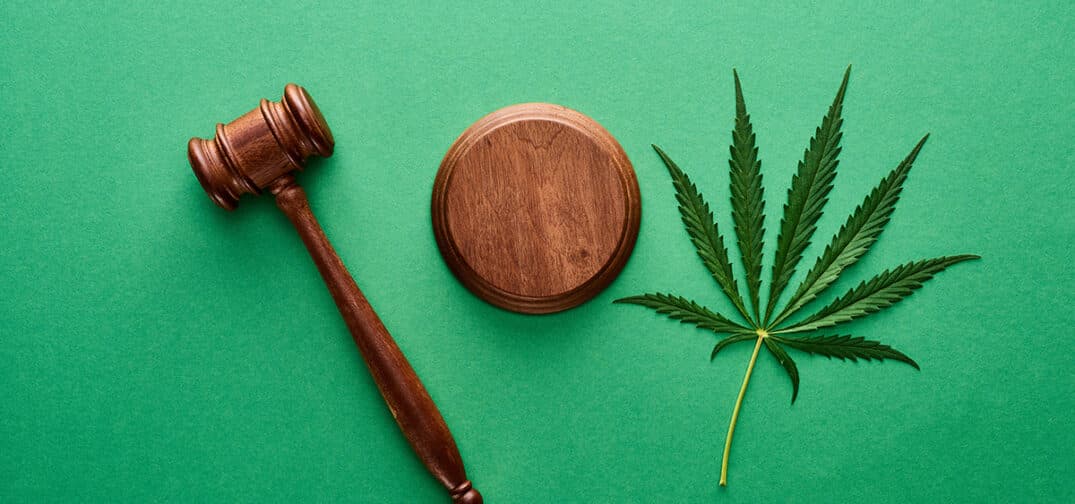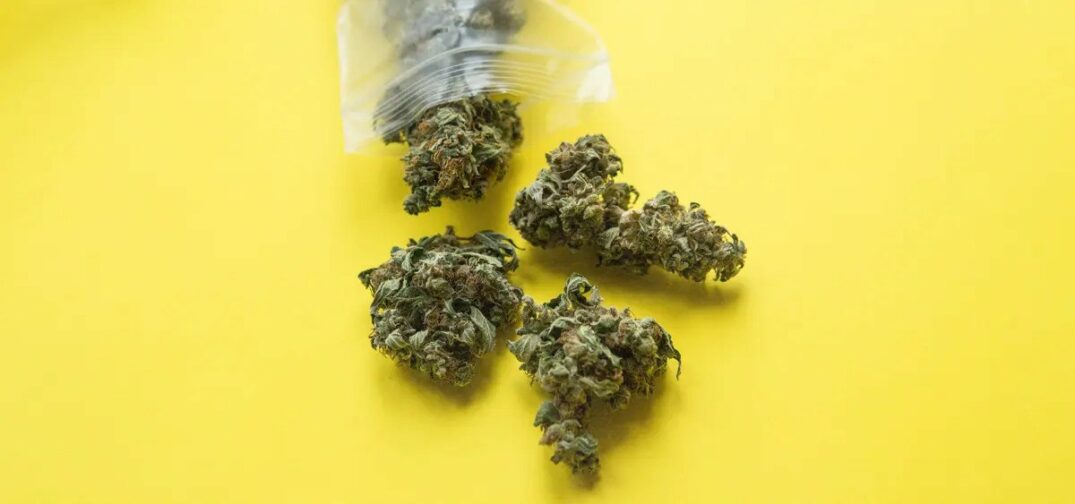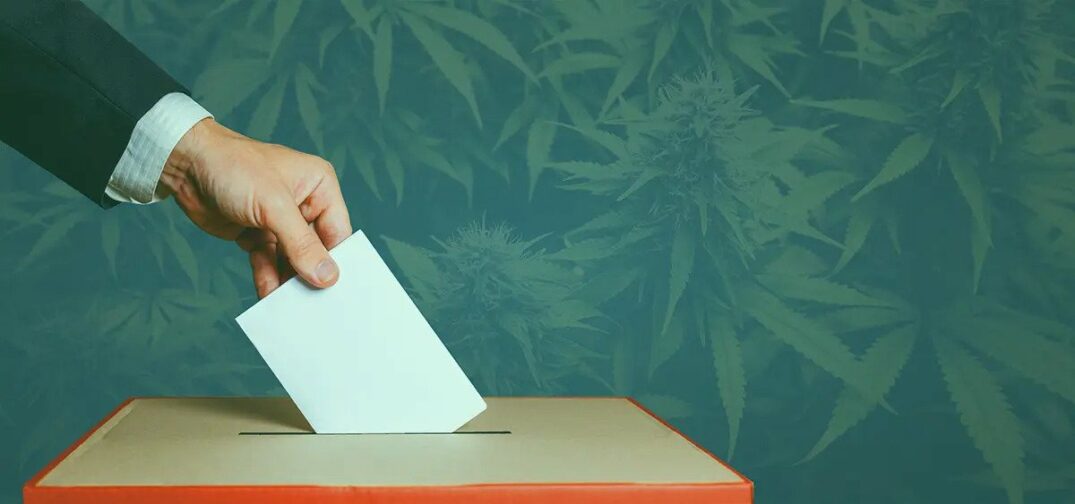In this episode of the Ganjapreneur Podcast, host TG Branfalt speaks with Tom Lauerman, better known as Farmer Tom, a longtime cannabis advocate, organic cultivator, and educator. As the founder of Farmer Tom Organics, Tom has worn many hats in his cannabis career, from medical grower and policy advocate to consultant and federal educator. In this insightful conversation, Tom reflects on his decades-long journey in the world of grassroots cannabis activism, including being arrested for cultivation in California, connecting with early pioneers like Dennis Peron and Brownie Mary, teaching federal scientists about organic cannabis farming, and more.
Tom also dives into the future of cannabis, offering his thoughts on the potential impact of federal rescheduling, the rise of pharmaceutical involvement in the industry, and the importance of patient rights and home grows. Whether you’re a home cultivator, medical patient, or curious about how the federal government is preparing for a change in policy, this episode delivers a wealth of knowledge: find us in your favorite podcast app, listen via the media player below, or scroll down for the full transcript!
Listen to the episode:
Read the transcript:
Editor’s note: this transcript was auto-generated and may contain errors.
TG Branfalt (00:52):
Hey there, I’m your host, TG Branfalt, and this is the Ganjapreneur.com podcast where we try to bring you actionable information and normalize cannabis through the stories of ganjapreneurs, activists and industry stakeholders. Today I’m delighted to be joined by Tom Lauerman. He’s the founder of Farmer Tom Organic’s, a medical cannabis cultivator, federal policy reform advocate, hemp educator and industry consultant. How are you doing this afternoon, Tom?
Farmer Tom Lauerman (01:18):
Pretty good, TG. How are you doing, buddy?
TG Branfalt (01:20):
I’m great, man. I’m real excited to have you on the show today. We have a lot to discuss. You’re a man who wears many hats. So before we get into that though, tell me about your background and how you ended up wearing all of these hats.
Farmer Tom Lauerman (01:34):
Wow, it’s been a long road. I’ve been consuming cannabis for 50 years. I started in San Diego. I was selling weed so I could take care of myself, was never really much of a drug dealer because I like to smoke my own. I did it so I wouldn’t have to purchase so much cannabis. And we started growing at a young age there in 1994 and five. We worked along with Dennis Peron and the people from San Francisco and San Diego to get Prop two 15 on the ballot, which we were successful in doing. And then that led into our collective garden shelter from the storm where we had 20 patients. You bought a light, paid 50 bucks a month, patients got to take what they wanted. I was the grower. Steve McWilliams was kind of the head of the group and he supplied the phones to make it all happen too.
(02:40):
So that was good. And then we got arrested for 448 plants in 99. We were real active in the community down there in San Diego. We used to go to the townhouse meetings all the time and bring our four inch pot plants and tell ’em how safe marijuana was after the law passed and they continually rolled their eyes until they arrested us and we went back with the media and the mayor, Susan Golding wouldn’t come out of her office. Her husband owns like Jack in the Box, and she was horrified that her police arrested us and they already knew us all really well. They gave us back our grow equipment. So we popped up, they got us kicked like they usually do. They got us kicked out of our space. They threatened the landlords. That’s when these things go down. That’s the kind of model they use.
(03:34):
We’re going to take your property if you don’t get rid of these guys. So we popped up a little four by eight grow room and one of our patients, Michael Bartel, quadriplegic, good friend of mine, and we popped up in there and then other patients throughout the county gave us little starts and we grew ’em out. And our court date was so high profile that NORML gave us a free lawyer. So in the process when they raided us, we all had a media list back then. So that’s when I really got in tune with the media Brownie Mary back in the day. She got off of her charges because she had NBC there. So we knew we needed to buddy up with the media people in town and all the news stations and the newspaper and stuff because if we did, if any of us got busted, they wanted to know right away.
(04:30):
So we had all their pager numbers and we all have media lists. And when they raided us, my wife got all the trim out of her apartment, put it into a neutral space, and then got on her cordless phone and called all the media within 10 minutes. They were all there at the gate. And so it was really well documented, super high profile. We went to jail and then NORML gave us a lawyer. It was so high profile for free, and they decided not to charge us not to drop the charges because they were expecting us to at least one of us to make the mistake again. And so they didn’t charge us. So it was kind of hanging over our heads. And we moved a couple years later to San Diego. Wasn’t the cool little beach town I grew up in anymore. It was turned into Los Angeles and traffic all over the place and I was doing landscape construction and it just one development looked like all the rest of the developments.
(05:36):
I couldn’t tell where I was. So we moved to Williams, Oregon where we lived for a couple years. I was a farm manager, organic seed farm down there. Did some growing down there. Williams is kind of like the Garberville of Oregon. It’s kind of the main hub there, tucked way back in the woods. Very cool community. We had no idea when we moved there that it was that kind of community. But everybody at the health food store at obs, people’s co-op, you say, oh, you guys are going to love Williams. You’re going to fit right in. So that kind of got us up here. We stayed there for a couple years. I was a farm manager, organic seed farm, and then we bought our own farm here in Brush Prairie, Washington, which is on the outskirts of Vancouver, really in the Portland metropolitan area. So I’m like 20 minutes from the airport, half hour from downtown Portland, five minutes from the I-5 that goes from the Canadian border to the Mexican border.
(06:38):
So it really, for doing advocacy was ideal. So we grew for patients and then eventually I left my regular job and dove in full-time growing for patients here on our farm. We wrote a book Cannabis Consumers Guide that we put out. And I used to go to all the farmer’s markets. So before legalization happened, we had a medical marijuana farmer’s markets up here in Washington State. So like every weekend I would do a different farmer’s market selling weed and promoting my book and being out there in the community knowing I really, after being arrested and take it through the gauntlet in San Diego, I really wanted to take my advocacy to the next level and normalize cannabis. And we were fortunate enough that Washington and Colorado were the first two states and not California because then they would’ve just bulldozed the over as far as media attention and normalization.
(07:46):
And they have such a stronghold there and such a big economy too. So we had a bunch of media attention up here. I was on dozens of different local, I worked with Cuomo News a lot, NBC out of Seattle, did a bunch of pre cannabis stuff and then Markovich from Como News called me and said, Hey Farmer, all these people are blowing themselves up and blowing their houses up and people are getting maim producing BHO, butane Hasell. We all know that the butane puddles up on the ground close to the ground. You plug any device in little spark, boom, the whole place goes up. Hot water heater, pilot light on your stove or on your oven, the whole place can go up. It was happening regularly. And I said I knew that the legislators, we were very active up there too in Olympia, Washington kind of laying out the cannabis and we wanted to really keep patients rights in there, which they kind of destroyed, but that’s another story.
(08:56):
But anyway, so we put on, I go, sure man, let’s do it. I’ll do the open blast outside the total Safeway, we’ll show you how to do it. And then we’ll do closed loop inside and we’ll talk about CO2 and we’ll talk about bubble hash and water hash and we’ll talk about RSO because legislators traditionally know nothing about cannabis at all, like zero. And I don’t blame ’em because they got so much coming across their plate every day. There’s so much going on in every community. So I took the opportunity to educate them. I said, Matt, we’re going to put on a three hour symposium and we’re going to help them make the correct decisions because my talking point was, and I put it all together. So I made like everybody take off their big hats and just say, we’re going to come across as legitimate as possible on our message we want to get across is if you don’t tax it a regulator, you can continue to have these explosions.
(09:59):
It’s like a hundred dollars fix for the tube, some Pyrex, a little heater, coffee filter, zip tie, and a couple cans of butane and they’re blowing themselves up. And we explained to ’em that we are creatures of habit. We’d much rather go to the store and buy the beer than make it ourselves. And the same thing’s going to be with concentrates and BHO and concentrates we’re really taking storm across the country. And so two weeks later, a week and a half later, they changed their mind, changed the laws and made all concentrates legal at that point. And that really put me on the map. Previously, I’ve been on the cover of Northwest Leaves activists this magazine along with Grandma Kat and Jonah Tacoma from Dab Stars and Joy Beckerman Hemp like Ace Lady. And that got me out there. And then the opportunity came to work with the federal government and they knew that me and my wife were traditional medical growers.
(11:12):
We lived the lifestyle. We grew vegetables along with our cannabis. We were educators. We really wanted to set the stage. So the union guys thought it would be great if we did it. So they picked me out and I got on the phone with 10 agents from the CDC scientist agents from the CDC, and I asked them, where are you getting your info? And they said, oh, we’re getting it all off YouTube. And I kind of said, ah, that’s kind of, that’s really not fair to our industry. Why don’t I give you a tour? The lawyers and the DOJ said, no, we’re not doing a tour to these illegal operations, but we can make your pharma location where federal agents can learn touch and steady cannabis. So they said, well, we’re going to have to do a thorough background check. And me and my wife, we’ve always just played by the rules.
(12:04):
I’m not a baller, I’m not running stuff all over the place. I’ve got enough to take care of with my patients and my farm and living a good life as opposed to doing all the other stuff. A lot of people were partaking in at that time. So I said, dig in. So they came for two days in August. We had seven agents from the CDC there, all top scientists. Cton was in Africa studying Ebola victims. And he flew to my farm for the two day. We had set up a little popup using my veggies on the farm, serving him food, and we educated him. So I knew at this time that I had one chance to do this. I had one chance to normalize cannabis and teach these heavily PhD scientists about cannabis, not only cannabis, but be around people who are smoking cannabis all day long.
(13:01):
And so we started on the first day of education, we started smoking weed around it them well, somebody had to do it right? And if they don’t, you got to educate these people too. Like this isn’t heroin, we’re not meth out, we’re not fentanyl out, we’re not drooling, we’re not drunk. We’re none of those things. We’re we’re cannabis patients when we’re taking care of our health. So not only did we do that, we did dabs in front of ’em, we rolled joints. We really wanted to show ’em the whole consumer side. And then in between we had BHO hydrocarbon demonstrations. We had the top lab guys here to explain what’s going on in the laboratory and what they’re testing for. We did trimming, I mean trim machines. We had the whole gamut for two days. They went out with us for pizza and beer at night.
(13:57):
When they came out of the farm, we hugged, we gave them a big hug because I’ve been working with them on the phone. So I gave them a big hug and they welcomed them into our farm. And usually when they go out on these things, they’ve told me since they go, man, we usually met with lawyers and other tech people. Wherever we swab, they swab. Everybody’s documenting everything. And we really didn’t do any of that stuff. My goal was just to educate them as best possible. So when they come back for this study in October, they would have some knowledge on cannabis.
(14:35):
They saw my organic inputs, they saw how we grew our vegetables, they, how we grew our cannabis. I had two collectives at the time where we had over a hundred plants. So it was federally legal and just like with BHO thing, everybody think it was thought, I got so much shit for it. Unbelievable for educating the state government to make decisions. Oh, you’re showing them all of our secrets. You’re letting all this stuff. And then the same with this, oh, you’re bringing the feds on. They’re going to bust you all this stuff. But I got to know these guys and I trusted ’em. So we became, I still work with them today. They’ve got me looking for a hemp processor out there who’s willing to work with them. They want to collect some dust out of the corners and maybe put up some sniffers in there and collect the dust so they can go analyze it to look for any kind of allergic reactions, any of those type of things.
(15:35):
This is all our workplace health and safety stuff. So when they, in October, they came for the official HHE Health Hazard Evaluation. It’s a federally funded study. So we were one of the first to do a federally funded cannabis study on our farm where they did harvesting one day, big leafing another day and trimming. And the trimming day. That hooked us up with the cyber glove where they tracked the repetitive motion of our hands. And not long after that, the CDC put out a public service announcement stating that tremors can have carpal tunnel, can get carpal tunnel because of the repetitive motion. And it kind of went on from there. It was hard getting it into my hands and into the public because it went up on the website first and it was 2016 in election year, and the Democrats didn’t want to look like they were favorable to cannabis.
(16:43):
So they pulled it off the website and then Trump got elected and they brought in a new department head for Health and Human Services, and I guess they just go through and signed these things. So they had a backlog of ’em. So they stuffed mine in the middle. The guy went through and signed them all and then am delivery like six 30 in the morning. The next day the box arrived from UPS full of all these health hazard evaluations printed and ready to go because they knew if they got it to me, the public, then the cat when they couldn’t turn it back. So it was a big deal. We got the federal government to use the word cannabis instead of marijuana. James, one of the scientists I still am good friends with and work with, he said, Tommy never used the word marijuana once I go, I did it intentionally and I got flack from a lot of the old advocates for getting these scientists to use the word cannabis instead of marijuana.
(17:46):
They’re all like, we fought to use the word marijuana. What are you doing telling ’em it’s cannabis. I’m going, I use my own better judgment. These are the top scientists in the world for workplace health and safety. They ride all the reports and then OSHA makes laws out of them. So they’re highly esteemed. My message to ’em was, look, you don’t want to look like fools out there. You want to use the proper terminology so the rest of the world respects you. If you go into this scientific study with marijuana all over the place, people, these other scientists around the world, they’re, they’re not going to look highly on you. So we convinced them to do it. They used the word marijuana once. In the first paragraph it says cannabis, also known as marijuana. And then through the rest of the study, it can be found on my website on farmer tom organics.com, or you can go to farmer tom.com.
(18:44):
That’ll get you over there too. But the reports there, the educational days there, we took a bunch of pictures. So that’s been a really great experience. I’ve helped them with other projects along the way, and I’m still their go-to guy. If they need anything for hamper cannabis and want to do some studies, they call me up and ask me, Hey, do you want to do this? And I’m always up to helping ’em out. It’s not a paying gig, but it’s good communication and I found it very beneficial for me to still have a good rapport with them and work with them, especially since we’re moving into schedule three. I think that’s where my focus is right now. So I want to
TG Branfalt (19:32):
Ask, you kind of had a rocky start being arrested early in the nineties. Are you surprised that in 2024 we are talking about federal rescheduling?
Farmer Tom Lauerman (19:48):
Oh yeah. We never thought it’d be legalized Back in the day. We knew medical went in California, but we knew that was a slow road. California and the West Coast are usually ahead of things and just like storms sweep across the country, cannabis swept across the country from west to east. And that’s the kind of way I look at it. And I was blessed to already have my farm here and living here for over, well, in that time, almost 10 years I’d been here on this farm and that it all came together. So I talked with the media all the time. Most people weren’t talking to the media. Well, everybody was too. They knew the end was coming and they were getting as much money for their black market stuff as they could. And I’ve been more of an advocate as opposed to a major producer. So
TG Branfalt (20:46):
Your company, you have your obviously hands in a lot of different baskets. You’re spinning many plates. Can you tell me about your growth as a company as more states have gone online with medical and then later adult use programs?
Farmer Tom Lauerman (21:00):
Yeah, we’ve just been doing consulting. We did the first outdoor cannabis tours in the world here with Kush Tours back in the day. And this was Washington State, so all of the people who wanted to get into the cannabis came through my farm. They were money people and a lot of Chinese Mafia and Mexican mafia. And I didn’t care. They were paying Kush tours of me to have ’em on the farm. And I’m an eager educator. I probably a little bit too much to my demise or at least cash in the pocket. I like to spell it all out and give everybody good solid information. So we had a ton of people come through our farm where we educated them. And that kind of started it off. And then when other states came on board and then me working with the federal government, it kind of built me some cloud in my own way. My taught classes at Clark College here in Vancouver, I’ve been a keynote speaker. I’ve been an educator in cannabis for a really long time, and we were able to educate the federal government for the first time on production of processing cannabis on my farm.
TG Branfalt (22:19):
Well, I want to talk to you about that. I mean, you are a trailblazer. You’re the first to educate scientists in the federal government about our cannabis production. The first outdoor cannabis crow tour with Kush Tours was being first your goal when you set out on these projects?
Farmer Tom Lauerman (22:34):
No, I just knew I had the window to do it. I didn’t really think about the first so much. I knew that California, as soon as California goes legal, I’m going to be not the guy anymore. You know what I mean? I was the guy with the beard and the farmer, and then it went to California and all of a sudden it was Swami. He was the, but I knew I had a short window and then that we would be the first. So I always answered my phone. I always invited the mediocre. I always had. I’ve had a couple, two, maybe three documentaries done on me. I’ve been in 50 plus magazine and podcasts, and I was on NBC Nightly News, squawk Box, business News Weekly. I’ve been in Time Magazine, I’ve been in all of them starting off with this tourist stuff that kind of brought me into the national spotlight. Tourism and cannabis was a big deal when Colorado and Washington first came in to the game. Nobody else was doing it. People were coming to Washington and Colorado to buy legal weed, go to a store, get that whole thing that we’ve all been dreaming about for decades, upon decades is actually come to fruition. And you can go into a store, buy some weed and go, go smoke it or whatever consumption methods you want to do.
TG Branfalt (24:05):
I mean, you’re also the first federally recognized cannabis farmer processor in the us. What does that mean? What did that actually mean?
Farmer Tom Lauerman (24:18):
Well, the federal government during their backgrounds and had stuff and having me on their farm, having them on my farm, they recognize me as a cannabis producer and processor, and still to this day because they utilize me and what the strength it brings in, especially going into schedule three, I’ve already been vetted by the federal government to grow and process cannabis. I already have deep connections into the federal government to help businesses work their way through the next phase because cannabis, it’s a moving target. Anybody who thinks cannabis is going to stay the way it is for very long hasn’t been in cannabis very long because we all have to be like Gumby. We can’t set up and say, this is my business model and we’re not going to stray for it from it. We all have to. And they put new laws in and we’re like the work around experts. Cannabis people know how to, well, how can we work around it and what can we do to make sure that we can still do what we’re doing without too much interference?
TG Branfalt (25:27):
So I want to know more about advocating at the federal level, which again, you’re probably, what one, if not a handful of people who have probably taken this that’s not a paid lobbyist. Did anything surprise you that they knew the scientists that you met with? Is there anything that surprised you that they didn’t know? And ultimately, how were you received?
Farmer Tom Lauerman (25:53):
I was received great from them. We became buddies with them. I mean, we still text each other on the holidays. I’m friends with these guys and I’m the guy, we smoked weed around them and we went to the pub and drank beers. And then I would go out. I always do halfway through my meal burn one down, come back in. I just wanted them, I really wanted to normalize cannabis and break the stigma.
TG Branfalt (26:20):
Was there something that they knew that you were like, oh, this basic stuff, or were they all completely
Farmer Tom Lauerman (26:27):
Blank? They didn’t know anything. They were getting all their information from YouTube,
TG Branfalt (26:33):
Which is ridiculous on its face,
Farmer Tom Lauerman (26:35):
Which is totally ridiculous. That’s why I said, whoa, whoa, whoa, whoa. What can I do to educate you before you come and do the study? So you have some base about cannabis in general because for me, they went to the Mayo Clinic who does Minnesota, takes care of all of their edibles and products there. They’re made by the Mayo Clinic people. So they went for me. They went up. This is only going to happen once. We’re only going to go to one small farm and then we’re stepping up into the big leagues. I felt very blessed and honored, and I respect them and the work that they do. I don’t believe in everything governments do, but the civilian people that work there, the civil servants who are doing the day-to-Day science and protecting workers and stuff, man, they’re just people like us really. They just go by what the higher ups they’re telling them to focus on at each point along the way.
TG Branfalt (27:37):
So since the rescheduling sort of news, right, it’s still a proposal since that’s come out, there’s been a sort of, people have been speculating about what is going to happen to the cannabis industry as it sits. What’s rescheduling to schedule three would actually do. You’re somebody who has spoken to federal regulators, essentially. What do you think rescheduling cannabis federally would actually do and the potential impact on the current cannabis industry?
Farmer Tom Lauerman (28:08):
Yeah, it’s a hot topic now, but we were talking about it back in the nineties. We were always, everybody’s rescheduled. We were always, no, no, no. We want to, we want to make it like tomatoes. I could have it on my farm stand, a bag of wheated or a bag of fresh leaves for juicing or whatever. I want it to be a regular commodity. And so rescheduling what it’s going to do, it’s going to be a handoff to the pharmaceutical companies. Schedule three. You need a prescription for it. So you can see the writing on the wall. People don’t want to talk about it. They don’t want to talk about two 80 e and how great it is and how great it’s going to be for ’em. But I’m not really seeing it that way. I’m seeing it more once it goes federally legal, it’s going to be like Viagra or any other drugs that are in schedule three where you need a prescription and there’ll be TV commercials out there. Amazon’s already pouring money into the federal government for them to be able to ship it around. So it’s going to be like that. You are going to see a commercial. We have doctors on hand. They will write you your prescription for medical cannabis. Call us now. And then it’ll be discreetly shipped to you in a discreet packaging. And I think the way that’s the, it’s going to go.
(29:35):
Government follows certain things and they’re always set up to help the big corporations out at the end.
TG Branfalt (29:44):
So you think it’ll end up in the hands of the big pharmaceutical companies like Merck and so on?
Farmer Tom Lauerman (29:49):
Yeah, exactly. Or the bigger players that are in the game already who have the funds to do it because it, it’s a big as. But right now, the regular market, all they’re really focused on is high THC numbers. There’s some obscure products out there with CBD and CBG and different minor cannabinoids in there. But all of ’em are really just focused on how high this stuff will get you. And these people are, they’re capitalists, American capitalists. What they want to do is they want people to be able to smoke all the time. Like my strains that I grow, they’ll get you high for three or four hours, medicated for three or four hours. The strains they want is going to get you high for 15 minutes to a half an hour, and then you’re going to smoke more, right? They want to put that addictive thing in there.
(30:43):
Well, I need more to keep my high where I want it or whatever they’re looking for, whatever relief. So they’re not always straight up. They really don’t. As we’ve seen in every other business, they’re not looking out after really the consumer at all, or the regular people mean just look at our food supply, totally adulterated all these chemicals in it. They cause all these things. And then on the prescription side, on the pharmaceutical side, you see ’em on tv, it’s going to cause diarrhea and death and eczema and rashes, but it’ll help you with this one tiny thing, but it’s going to contribute to all these things. But what cannabis does in that is there’s all these different cannabinoids, there’s all these different terpenes, there’s all these different flavonoids. So there’s endless amounts of different therapeutics is what they like to call it these days.
(31:42):
Get these therapeutic blends out there and they don’t want to go away from their chemical based. These are all petroleum-based derivatives that create all the medication out there. And way back when, I think the Rothschild or whatever, once they went over and they kind of took over the colleges for medical school, and when you go to medical school these days, you learn a little bit about the body, but your main thing is to learn how to prescribe properly and to use our medicine. So cannabis can relieve all these different symptoms. It is great therapy for so many different things, but they don’t want it because it takes ’em away from what they’ve built decades to do. And it kind of smashes it all. And when you could do with terpenes of different cannabinoid compounds and flavonoid compounds address a lot of these issues therapeutically, then you really don’t need their expensive concoctions that they’ve made up that do all this other harm.
TG Branfalt (32:53):
I do want to go back a little bit to something that you said, talking about the trend of really THC, seeing how stone something can get you, and this is something that I’ve kind of pondered for a while, that there’s all these reports that cannabis is much stronger now. I don’t know how much I necessarily believe that, that sort of reporting, but it is true that when I started consuming cannabis in the early two thousands, you could get flour concentrates, you could get some hash here and there, but concentrates didn’t really exist in my world. I’m sure they existed, but not in my world. RSO, that sort of thing. Does that trend of these cannabis products, legal cannabis products being really potent, is that something that worries you as an advocate, as somebody who views it as a healing plant as opposed to a quote party drug?
Farmer Tom Lauerman (33:46):
Well, I think it’s going to be beneficial to have schedule three because the hemp side of it all, they’ve really focused on all the minor cannabinoids and they’re worlds ahead. They’re already federally legal out there, so they have to be GMP certified, they have to do all this thing. And there’s so much more advanced in the healing modalities or the healing components of cannabis than they are about profits and selling and getting people as baked as possible. So I really think the hemp, if we could concentrate on the hemp side of it and take the legalization that’s already happened and pull that model in, which is much less restrictive. They have to pay taxes, they have to do all the things that do a business, but being hemp, they can take the tax benefits too from it. So I just think that they’re way ahead.
(34:44):
I think the overregulation and the greed from the states, they really kick the patients to the side. And it’s all about making money for the states, mainly making money for the states. If you can’t ride off all these different tax exemptions and all the money’s just pouring into the different government agencies then. And really, I’m on the board of directors of a couple different medical groups, cannabis patients northwest here locally, and the Coalition for Patient’s Rights, which is a national organization based out of Nevada. And we look at all the different states, and it all started with medical, but now it’s all recreation and it’s all about money. So I learned when I was a kid, man, follow the money. Follow the money where it’s all happening. And if you follow the money in cannabis, it’s pretty much he tells the story.
TG Branfalt (35:46):
So I want to talk about your role as an educator. You launched the Hemp Farming Academy. You co-construct a cannabis and your health course at Clark College. Was education a natural progression for you?
Farmer Tom Lauerman (36:01):
Yeah, I always wanted to normalize and educate people and de-stigmatize the cannabis. I mean, that’s why we educated people here. When we did the tours originally, the book, I put out educated people, we educated the, I took the initiative. It was all my idea to educate the federal government. I said, well, let’s bring them in and teach ’em what’s really going on and let’s smoke weed in front of ’em and let’s show ’em how it is. And I can only assume that these are the same scientists from the Department of Health and Human Services that just recently made it said that cannabis has medicinal benefits, which has never been before, which is monumentally huge. It’s been downplayed, but what they’re doing now is monumentally huge, huge, huge. It just says that cannabis has medicinal benefits. That alone is crazy. So I’m all about get away from the rec side and let’s go back to the medicinal side and let’s force these pharmaceutical companies, these big companies, to focus on all the medicinal therapies that can be creative with terpenes and different cannabinoids and flavonoids, and let’s bring it all together and do some real medicine here.
(37:23):
Plant-based.
TG Branfalt (37:24):
Just as an aside, there are a lot of recreational consumers. They’re actually using cannabis therapeutically. They just don’t have to go through that medical sort of process, which for some people, maybe due to their job, they may work in a safety sensitive position or due to their owning of firearms, for example. I think that’s what keeps some people out of, because you do see, when RET goes online, you see a decline in patients. That doesn’t mean less people are using cannabis therapeutically. It means that less people are choosing to sort of register with the government. Do you think that that’s fair?
Farmer Tom Lauerman (38:10):
It’s what’s been going on. And people, they already know the products they’re after, they just can go buy it at a store without paying the extra fees, without being on a list is a big deal too. Who knows how these lists get opened up and then what could happen if a different administration comes in and they decide to clamp down? They got a list of all these patients if they really want to go. But I just don’t think, first of all, I don’t think the government, the federal government has the forces to regulate it, heavily regulated it anymore. The states definitely don’t. Every state has huge homeless populations, huge, huge step rings, like all, it’s kind of like our world’s just falling apart out there. I mean, I live in Portland and I was just in Portland and Portland yesterday, and the homeless problem there is huge still to this day. And they’ve made homelessness illegal, but it’s still all over the place. They don’t have the funds to control it. So I think people are out there. They know when they buy from the stores, they know what they’re getting. They want to make sure they get the right products.
TG Branfalt (39:30):
Tell me about your role as a consultant, which is I guess the sort of amalgam of everything that you’ve done in the cannabis industry and kind of in your life to this point when it comes to cannabis. What typically do people reach out to you for as a consultant?
Farmer Tom Lauerman (39:47):
Oh, I’ve been doing a lot of hemp consulting around the world. Did some in South Africa been helping out? A lot of different growers get started, and I think it’s more beneficial to bring somebody, it’s more beneficial and honest. Not that capitalistic businesses are honest. They want to bring in that best grower and then they want to have them there for a year and they want some kid to follow ’em around and learn everything that’s going on. And then they dump ’em for the $16 an hour, $20 an hour kid who’s learned the chops on growing cannabis and continuing it on. I think it’s better to bring on somebody like me. We walk you through, we educate you through the whole deal. You’re not screwing anybody over At the end of the day, your business doesn’t get black marked or looked down upon because you took advantage of people who, who’ve been in the cannabis industry for 20 plus years, or born into it from Oregon or Humboldt. Their parents grew cannabis too, and you get stained.
TG Branfalt (41:02):
So you said that you did some work in South Africa. What are other countries doing, or maybe the way that they regulate or maybe what some of the people that you are sort of working with, what are they doing that may be different than the United States or entrepreneurs in the United States?
Farmer Tom Lauerman (41:23):
Well, as far as South Africa is, the way they have their system set up is ideal. Everybody gets to grow their own weed and smoke their own weed, and there’s no recreational out there. It’s basically neighbors taking care of neighbors. I’m growing the corn, I’m raising the pig, I’m raising the cow, you’re growing the weed. We do a little exchange community, a community effort, and I think that’s really got the government, it’s all governments a little bit worried because they want to control everything and make as much money out of as possible. Basically, at the end of the day, it’s all about money.
(42:04):
Like South Africa, the government there knows nothing about cannabis. The inspectors, the police who come out to look at the fields, they really don’t know what they’re looking at. They have no idea what’s going on. There’s so much education that needs to take place in all of these countries. Now, if we look at Thailand now, Thailand went fully legal, but they saw that Schedule three popped up in the United States. And so we all want to keep America happy. So we’re going to get rid of our legal and we’re going to go back to medical. Sure, these stores are going to be open, but there’ll be a doctor in these stores or right next door. Yeah, go next door, see the doc next door. He’ll get you your paperwork. Then you can come and buy your products. So I think my spidey sense is that that’s what happened in Thailand. And if you do the math and look at the dates, as soon as the US government says we’re going to schedule three, which is back to a prescribed product, almost instantly the Thai government said, oh, we’re going to do the same thing.
TG Branfalt (43:16):
Do your Spidey senses tell you that we’ll see full decriminalization in your lifetime and possibly mine?
Farmer Tom Lauerman (43:25):
I don’t know. Well, yeah, on the federal level, I’m sure you won’t be able, I mean, people won’t be going to jail for it. The things that we really have to hold onto is home grow is huge and then medical patients’ rights to grow their own. And it’s been sad to see some people in the industry, even here in Washington in the early days, who had licenses to have a regular recreational license to sell, saying that, oh, we can’t have patients grow on their own. Oh, it’s too dangerous. They’re, they’re going to hurt themselves or somebody else, which is like a bunch of garbage, man. It’s a plant. If you can grow tomatoes, you can grow your own cannabis. Believe me,
TG Branfalt (44:11):
It may not be that good because I can grow tomatoes and I’ve tried to grow cannabis and it did not go well. What advice do you have for people looking to enter the cannabis space as it currently exists?
Farmer Tom Lauerman (44:28):
Well, I’d say be prepared for three. I’m really encouraging all of these groups to go. If you want to make the next move, bring somebody up like me who’s got experience working with federal regulators inside, I can get some inside information. I’ve already been vetted by the bring somebody in like me who can help you guide you through all the different things that are going on. Hold on one second. Since this is on tape, I don’t have to worry about it too much. But yeah, there’s going to be what’s coming down the road with Schedule three that’s going to bring both opportunities and challenges for all these businesses, right? They’re going to have to know about regulatory compliance, and I can help ’em with that. Dealing with the federal government and DEA and the F FDAs, all their rules and regulations. We can put in customized training programs to educate all their employees on a proper way to do GMP certified facilities and get up to date to play in that federal realm where it’s going, licensing, permitting.
(45:51):
I can help out with all those things. I can assist with federal licensing and applications and local stuff. Also operational audits and SOPs. I’m pretty, my SOPs through the work that I did with the federal government are the foundation for all workplace health and safety standards in the cannabis industry, and also my advocacy and representation. The work that I’ve already done carries a lot of weight in the federal laws that are coming aboard. And I think if you bring me on board, you have a better chance of participating in what’s coming because like I said, it’s a moving ball. Cannabis has always been a moving ball. If everybody thinks it’s going to be the way it is right now, it’s five, 10 years from now, I think you’re wrong.
TG Branfalt (46:44):
I would have to agree with you there. It sounds though like we would need for all the businesses and we would need a team of yous. Do you have any anticipation of training a team of yous in the future?
Farmer Tom Lauerman (46:59):
Yeah, definitely. I’ve got a group of people who are good educators like myself who have been around the plant for a long time. And yeah, I am looking forward to building a nice team around myself, a really well qualified educators and people who know the rules and what’s coming down the road.
TG Branfalt (47:22):
Tom, really, this has been a fascinating conversation. You have one of the most unique, interesting, and the longevity in this industry is really second to none. So I really appreciate you coming on the show and your candor throughout the course of the show. Where can people find out more about you? About Farmer Tom Organics? Yeah,
Farmer Tom Lauerman (47:48):
Go to farmer tom.com. That’ll shoot you over to the Farmer Tom Organics page. You can Google me. There’s a ton of information out there. You can just get on the phone. I answer my emails. I get back to people. I’m eager to help people ease into this new industry. It’s going to be a couple years, but the time to get started is now. And don’t dilly dally around because it’ll be here before you know it, and then you’ll all be scrambling and not being a part of the party. This is where it’s really going to be. And me, I really haven’t, I’ve turned down a lot of opportunities over the years because I listened to the people in my group who knew what was coming down the road. They knew it was going to be a race to the bottom. They knew all these startups, 90 something percent, just like any new industry that comes out, there’s endless amounts of failures out there.
(48:46):
So we own all of our own ip. I own all of my art. I was one of the first people to put his name and like this on a cannabis product by a guy named from a Nike artist, somebody from Nike, and then a guy from Marvel columnist did a full line of cannabis trading cars. So when you’re out there and just happened to be the first, you get all this influx. Everybody wants to jump on your ship, and that was cool. I got a lot of good, and we own our name. I’ve never taken any money, and I’m ready to work with any team who really wants to be a part of the next phase of cannabis, which is going to be pretty big, and it’s going to be some big dollars that are needed to be invested in to get to that place.
(49:35):
But with all of these cannabis companies and hemp companies that started off, there’s all these facilities out there right now that can be picked up for pennies on the dollar. So it’s a great time to jump in. It’s a great time to invest in some of these facilities that are fully functional, ready to go, but they’ve gone out of business and literally can pick those whole operations up for pennies on the dollar. I also have a genetics that I’ve been collecting and seeds that I’ve been collecting for years. Not only do I have the high THC ones, but I’ve got all the minor cannabinoids and all the terpenes covered. I have some high ling seeds that were collected from a friend of mine who recently passed away. He was a drug smuggler in the sixties, seventies, and he collected all these seeds and then he started breeding them and then he got sick.
(50:32):
So he had all these seeds and he started sending them to me. But he goes, I really want to get these good ones up and going again, so I’m going to send them to you. So he gave them to a mutual friend, and then he called the mutual friend and said, I need to go to the hospital. And then the next morning he died after the package was come into my house. So I have all these really old genetics and these really stable genetics with all of the cannabinoids and all the terpenes covered, not just the high THC one, but all the minor ones. So not only do I bring into your operation getting ready for schedule three, which is all going to be about therapeutics, and I have all the genetics that come with me. So not only are you working with the federal government being vetted all these things, but you’re also getting great genetics to start the process of creating great therapeutics.
TG Branfalt (51:35):
Tom, thank you so much for being on the show and for telling people not too dillydally because changes are coming soon.
Farmer Tom Lauerman (51:59):
Yeah, I want to thank everybody, at Ganjapreneur. You guys have been super good to me over the years. I appreciate getting to know you guys and supporting you. It’s definitely my go-to place to get cannabis news on a daily basis, kind of what’s breaking and yeah, it was pretty interesting to see what was going on with the DEA, getting their feedback, the public feedback. Nine out of 10 people want reform, want Descheduling want rescheduling, and then there’s only a handful of middle state attorney generals out there who really don’t want it. They’re still stuck in the caveman days and don’t want to budge. It’s too lucrative. It’s a money source for them. For all law enforcements, when they raid somebody, they can take your house, they can take your boats and your car, whatever you got, and that funds them. It’s money into them. So when cannabis became legal, they’re losing money from it.
TG Branfalt (53:07):
Money is also the only reason Smart Approaches to Marijuana exist, which is the opposition group who did a sort of form letter campaign against the federal rescheduling proposition and were one to every 100 was in opposition. Tom, thank you again so much for being on the show. That is Tom Lauerman, founder of Farmer Tom Organics, medical cannabis cultivator, federal policy reform advocate and educator and industry consultant.

